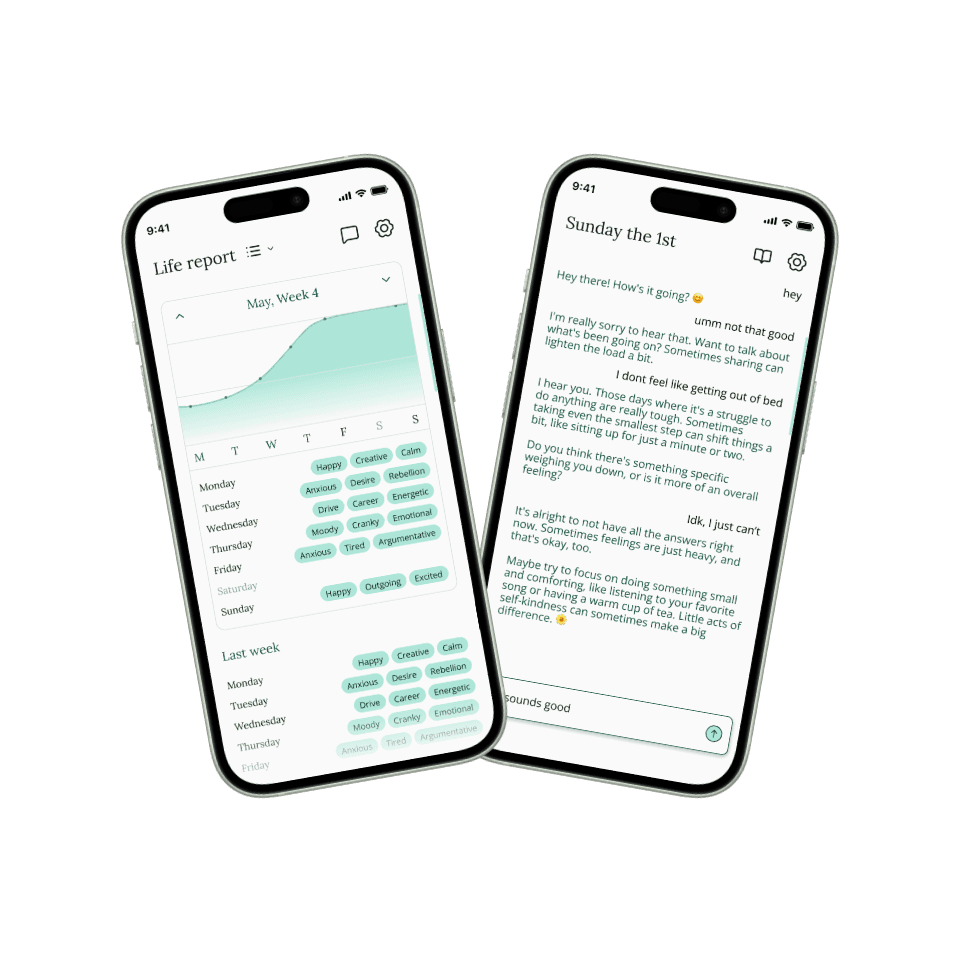
First Therapy Session: What to Expect and Essential Tips
First Therapy Session: What to Expect and Essential Tips
Aug 29, 2024
Aug 29, 2024
Many people feel anxious when starting therapy, but understanding what to expect can help ease those pre-session jitters. This guide offers valuable insights and tips to help individuals prepare for their first therapy session.
What Happens in Your First Therapy Session?
Before diving into the tips, it's helpful to know what typically happens in a first therapy session. Generally, a therapist will:
Introduce themselves and explain their approach
Ask about the client's reasons for seeking therapy
Gather some background information about the client
Discuss the client's goals for therapy
Answer any questions the client may have
Now, let's explore four key things to remember about the first therapy session that can help individuals feel more prepared and confident.
1. The First Therapy Session is Just a Conversation
The most important thing to understand is that the first therapy session is essentially just a conversation. There's no need to prepare a detailed life story or have all issues neatly categorized. The therapist will guide the discussion naturally, starting with some basic questions about why the client is seeking therapy and what they hope to achieve.
It's common for clients to worry about freezing up or forgetting what to say, but the conversation often flows more easily than expected. It's important to remember that in the first therapy session, it's okay to say "I don't know" or "I'm not sure." It's not a test - it's the beginning of a process of exploration and self-discovery.
2. Emotions are Welcome in the First Therapy Session
One of the biggest fears many people have going into their first therapy session is that they'll break down crying and feel embarrassed. However, displaying emotions is perfectly normal and accepted in therapy. Therapists are prepared for this and will often simply offer a tissue and give the client space to feel their emotions.
The first therapy session is a safe space for clients to express themselves, and that includes all emotions - sadness, anger, fear, joy, and everything in between. Therapists have seen it all before and won't judge clients for showing how they feel. In fact, allowing oneself to be vulnerable can lead to some of the most productive moments in therapy.
3. The First Therapy Session is Just the Beginning
It's important for clients to understand that they shouldn't expect to have all their problems solved in the first hour-long session. The initial session is more of a meet-and-greet. It's an opportunity for the client and therapist to get to know each other and see if they're a good fit.
Much of the first therapy session is often spent going over the client's background, current situation, and goals for therapy. The therapist will typically explain their approach and how they work with clients. It's more about laying the groundwork for future sessions rather than diving deep into any one issue.
4. Self-Care After the First Therapy Session is Important
One aspect that often surprises people is how emotionally drained they might feel after their first therapy session. Talking about problems and digging into emotions, even just a little bit, can be exhausting. It's totally normal to feel tired, emotional, or a bit off-balance after therapy, especially in the beginning.
It's recommended that clients take it easy for the rest of the day after their first session. This could mean ordering favorite food, watching a comforting show, or going to bed early. Giving oneself permission to rest and process is all part of the healing journey.
Final Thoughts on the First Therapy Session
Starting therapy is a brave step, and it's okay to feel nervous about the first session. However, understanding what to expect can help alleviate some of that anxiety. It's important to remember that every therapy journey is unique, and what one person experiences in their first therapy session might be different from another's.
The most important thing is that by attending their first therapy session, individuals are taking steps to take care of their mental health. That alone is something to be proud of. With these tips in mind, clients can approach their first therapy session with more confidence and openness.
Many people feel anxious when starting therapy, but understanding what to expect can help ease those pre-session jitters. This guide offers valuable insights and tips to help individuals prepare for their first therapy session.
What Happens in Your First Therapy Session?
Before diving into the tips, it's helpful to know what typically happens in a first therapy session. Generally, a therapist will:
Introduce themselves and explain their approach
Ask about the client's reasons for seeking therapy
Gather some background information about the client
Discuss the client's goals for therapy
Answer any questions the client may have
Now, let's explore four key things to remember about the first therapy session that can help individuals feel more prepared and confident.
1. The First Therapy Session is Just a Conversation
The most important thing to understand is that the first therapy session is essentially just a conversation. There's no need to prepare a detailed life story or have all issues neatly categorized. The therapist will guide the discussion naturally, starting with some basic questions about why the client is seeking therapy and what they hope to achieve.
It's common for clients to worry about freezing up or forgetting what to say, but the conversation often flows more easily than expected. It's important to remember that in the first therapy session, it's okay to say "I don't know" or "I'm not sure." It's not a test - it's the beginning of a process of exploration and self-discovery.
2. Emotions are Welcome in the First Therapy Session
One of the biggest fears many people have going into their first therapy session is that they'll break down crying and feel embarrassed. However, displaying emotions is perfectly normal and accepted in therapy. Therapists are prepared for this and will often simply offer a tissue and give the client space to feel their emotions.
The first therapy session is a safe space for clients to express themselves, and that includes all emotions - sadness, anger, fear, joy, and everything in between. Therapists have seen it all before and won't judge clients for showing how they feel. In fact, allowing oneself to be vulnerable can lead to some of the most productive moments in therapy.
3. The First Therapy Session is Just the Beginning
It's important for clients to understand that they shouldn't expect to have all their problems solved in the first hour-long session. The initial session is more of a meet-and-greet. It's an opportunity for the client and therapist to get to know each other and see if they're a good fit.
Much of the first therapy session is often spent going over the client's background, current situation, and goals for therapy. The therapist will typically explain their approach and how they work with clients. It's more about laying the groundwork for future sessions rather than diving deep into any one issue.
4. Self-Care After the First Therapy Session is Important
One aspect that often surprises people is how emotionally drained they might feel after their first therapy session. Talking about problems and digging into emotions, even just a little bit, can be exhausting. It's totally normal to feel tired, emotional, or a bit off-balance after therapy, especially in the beginning.
It's recommended that clients take it easy for the rest of the day after their first session. This could mean ordering favorite food, watching a comforting show, or going to bed early. Giving oneself permission to rest and process is all part of the healing journey.
Final Thoughts on the First Therapy Session
Starting therapy is a brave step, and it's okay to feel nervous about the first session. However, understanding what to expect can help alleviate some of that anxiety. It's important to remember that every therapy journey is unique, and what one person experiences in their first therapy session might be different from another's.
The most important thing is that by attending their first therapy session, individuals are taking steps to take care of their mental health. That alone is something to be proud of. With these tips in mind, clients can approach their first therapy session with more confidence and openness.
View more insightful blog articles
Today's tune



Track your mental health and get support between sessions with Verba
Learn more

Track your mental health and get support between sessions with Verba
Learn more

Track your mental health and get support between sessions with Verba
Learn more

Advait Naik
Advait is the founder of Verba and is working at the intersection of psychology, design and technology to create Verba, an app that helps us be more self aware through clarity and communicate our life in therapy